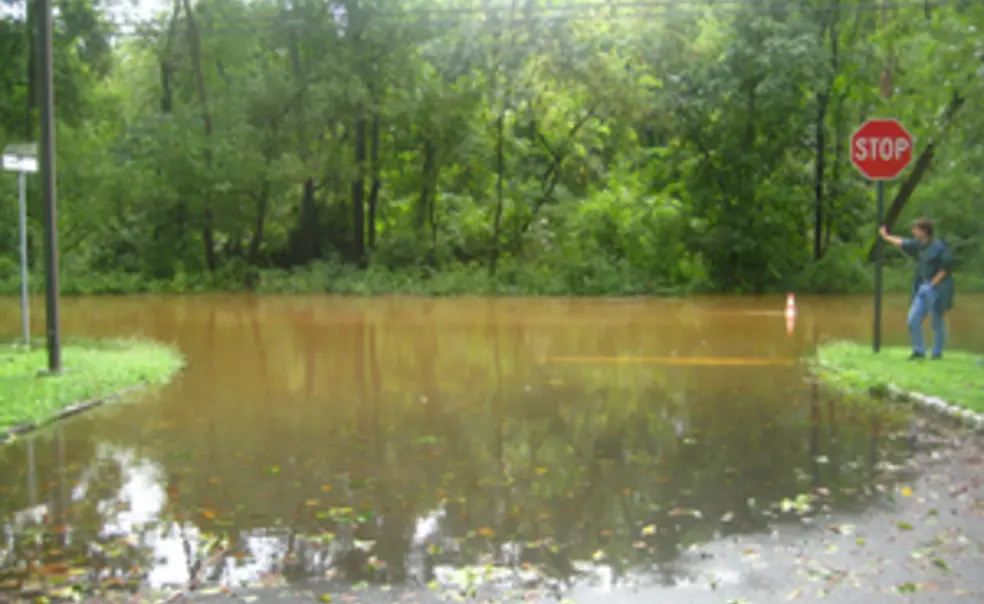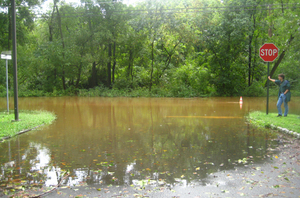After Irene, campus cleans up and gets back to work
Flood waters from the storm blocked the south entrance of the Lawrence Apartments. (Courtesy Ana Bell GS)
When Rachael Alexandroff ’12 found out that her Sunday flight back to Princeton was cancelled in anticipation of Hurricane Irene, she tried to rebook it – six times. Alexandroff, a volunteer leader of Princeton’s international student pre-orientation program, finally gave up, boarding a bus that got her into Princeton on Tuesday night, just in time to help check in incoming freshmen.
With half of the pre-orientation volunteers held up due to hurricane-related travel disruptions, Alexandroff said that “everyone has had to step up and work a bit harder and longer.”
In the wake of the hurricane, the University was closed on Aug. 28 and 29 to all but essential staff, and implemented a delayed opening on Aug. 30 due to power outages and road closures. Hurricane updates were posted periodically on the University homepage.
At least eight trees fell along campus roadways, according to University spokesman Martin A. Mbugua, but all windows and roofs remained intact. The worst flooding hit the Boathouse, which took on four feet of water as Lake Carnegie spilled over its banks. The University facilities staff was on call throughout the storm.

Facilities workers were on call to remove downed trees after Irene passed through Princeton. (Frank Wojciechowski)
Amina Yamusah ’13, who works at the Firestone Library circulation desk, said that she was surprised to receive a call as early as Friday alerting her that the library would be closed on Sunday.
The experiences of the approximately 500 undergraduate and 2,500 graduate students on campus during the hurricane varied. Molecular biology graduate student Daniell Rowles said that the University’s frequent updates were helpful. “Generally, the storm didn’t really disrupt life in many ways,” she said, adding that power outages were addressed quickly, and that the only such incidents of which she was aware occurred as an intentional safety precaution after the storm.
Kjell Wangensteen, an art and archaeology graduate student, wasn’t so lucky. Although he was in Germany during the hurricane, the basement that he was using as storage space flooded as a result of power outages.
But perhaps the most substantial mark left by Hurricane Irene on campus activities was on the Outdoor Action program. Director Rick Curtis ’79 said that specialized trainings scheduled to take place during the storm for leaders of farming, biking, canoeing, and outdoor adventure trips were cancelled, requiring these trainings to be condensed during the week.
He added that approximately 40 of the 97 trips must be relocated due to park or road closures north of New Jersey, making for a “pretty challenging” few days. “We have had to deal with bad weather in the past, including evacuating groups from hurricane zones, but that has always been in a limited area,” Curtis said. “We have never had such a larger number of our trip sites affected.”













No responses yet